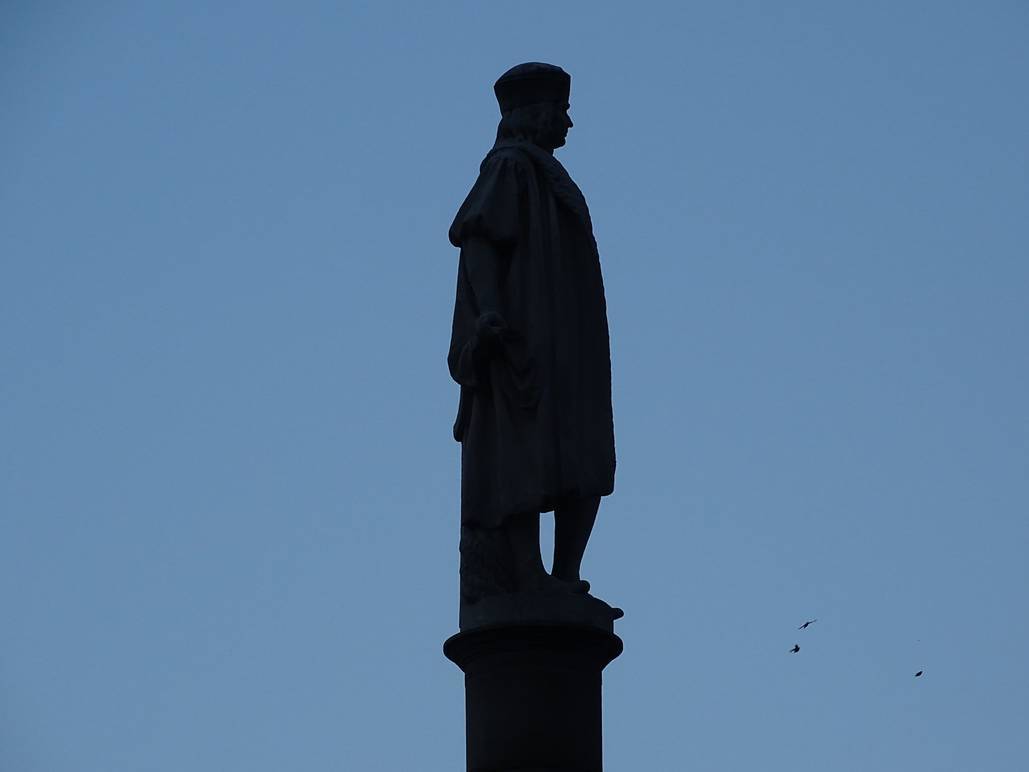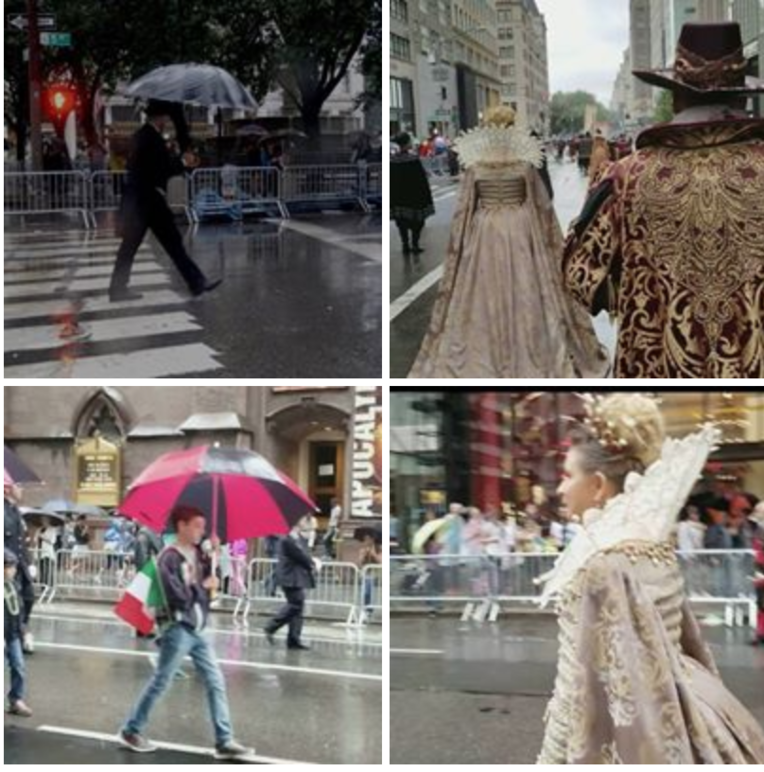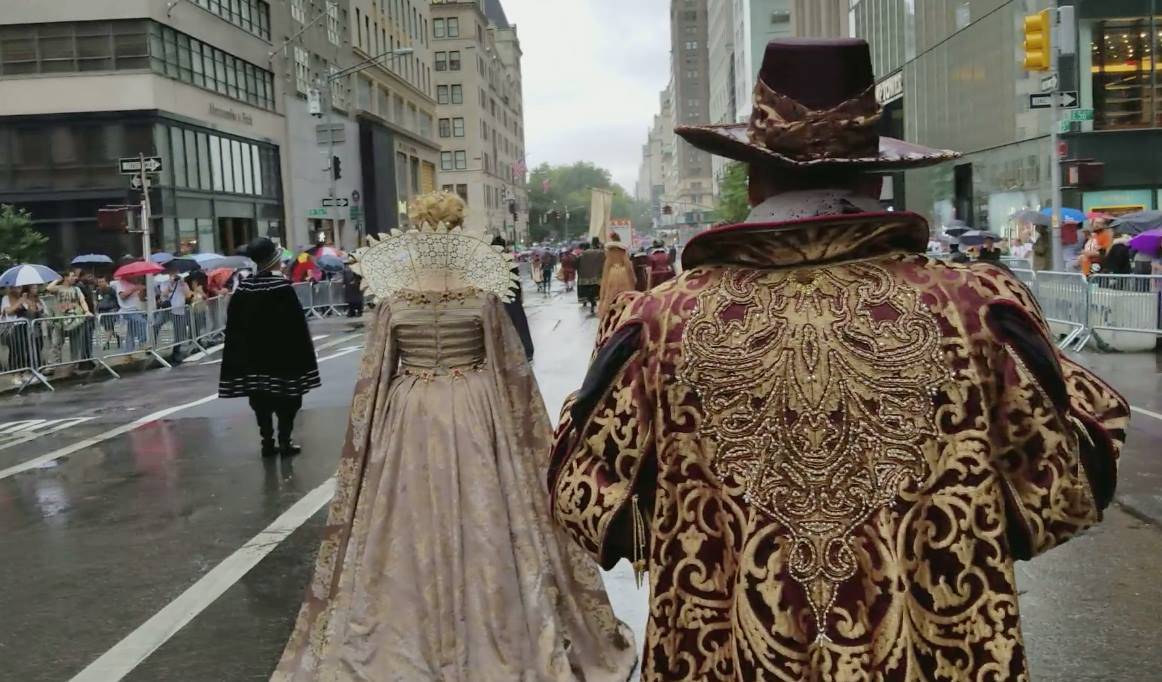EDITORIAL - An “Italica” Under an Umbrella on Columbus Day
This year’s Columbus Day, is one we won’t soon forget. Not only for the polemics surrounding the Italian explorer but for the unrelenting downpour that lent a particular mood to the parade down Fifth Avenue. Rather than presenting you with the contents of this issue of our magazine, I’d like to tell you about that day.
I was there under an umbrella, with the glistening rain on the pavement, amid the people watching the parade’s increasingly wet participants go by. Something Italo Calvino once wrote came to mind, that “walking implies that with every step some aspect of the world changes, and that something in us changes too” (“The Thousand Gardens” in Collection of Sand). Yes, as we walk through it, the world changes and we change with it. Surrounded by people under the increasingly hammering rain, I thought back on the various parades that I had seen on Fifth Avenue.
I’ve been in the United States for twenty years. I try to pursue my job as a communicator and cultural mediator with honesty. There’s a lot to do in this line of work, a lot to mediate in order for it to be communicated. In particular, history—especially as seen from here in the United States.
There’s History, and there are many histories. Older, less old. There are different countries. Different peoples. Different sensibilities. Different attitudes toward the distant past. Different cultures. Old. Young. And there’s a future to be built step by step. In my line of work it’s important to tell a story and to “take a step back” from the events of a story. Sometimes I succeed. Other times I don’t. But I think the story of the statue of Columbus has been a bit exploited. For various reasons. You have to have the courage to see the other side of a story. Indeed, to see it by taking a step back.
To try to understand every point of view, interrogate every line of reasoning, with humility, without falling back on comfortable and occasionally populist positions. To have the courage to say or listen to something uncomfortable, something you might not like.
In the case of the “Columbus controversy,” it’s most important to look people in the eye—those in the parade and those outside protesting it. Whether they are Italians, Italian Americans, Native Americans, or “simply” Americans of all races and colors. Only then can we understand that the figure of Columbus provides us with many means of reflecting on the other, on our identity, whatever that may be, without demolishing history or being scared that someone is demolishing it. I recommend practicing this exercise before taking any position.
This is a big country. Yet its attitude toward its history is very different from Europe’s. It can be contradictory. On one hand, it seeks it out desperately. On the other, it can easily erase it. Do you remember the building that housed the historic Italian bookshop Rizzoli in Manhattan, which was torn down two years ago because it was considered obsolete? It was so beautiful. It would be difficult to imagine something like that happening in Italy. Neither would you think of tearing down Caligula’s or Nero’s statues because these were cruel and violent emperors.
We must take time to reflect. It would benefit everyone. It might also help Italians and Italian Americans constructively dust off the recent and less recent past.
In this issue you’ll find various points of view on the question of Columbus, some in favor and others less so, but all—in our opinion—make valid points. We believe it’s necessary to talk about this issue beyond the day of the parade. What’s missing from our community is debate. We don’t need a single voice that speaks for everyone. We need a plurality of voices and opinions. We need dialogue and diversity. Yet, we can’t blow our tops over the first quibble.
That is exactly what we try to do in this magazine, on the Internet, and in our weekly television program on NYC Life. It’s an “Italico” world that mulls matters over—and we bring it into your homes, workplaces and schools, whether you’re having fun, on your commute, or relaxing on the weekend. We’ve been doing it for years. We do it in English so that we can address everyone, not only the handful of Italians living in the US (a little over 250,000 people, according to Italian Embassy statistics). And we try to do it by telling stories that embrace the “Italico”—and not simply “Italian”—story, in a heterogeneous and across-the-board fashion. We do it by trying to mediate various viewpoints in order to better understand one another. But what does “Italico” mean?
For an answer, let me turn your attention to American writer and journalist Fred Plotkin’s interview with Pietro Bassetti, an intellectual and Italian entrepreneur who coined this term—“Italico”—we’re particularly fond of (see below, page 16). We like it because we believe it brings us all under one umbrella—Italians and those who love Italy and the Italian lifestyle, whatever their nationality.
Those who paraded down Fifth Avenue on Columbus Day, those who stood against it, and those who remained indifferent to it. We think the word “Italico” groups us with our readers, viewers and web-users. And it does so while respecting our differences in a perfectly “Glocal” space.





























































Comments
painfully pleasant